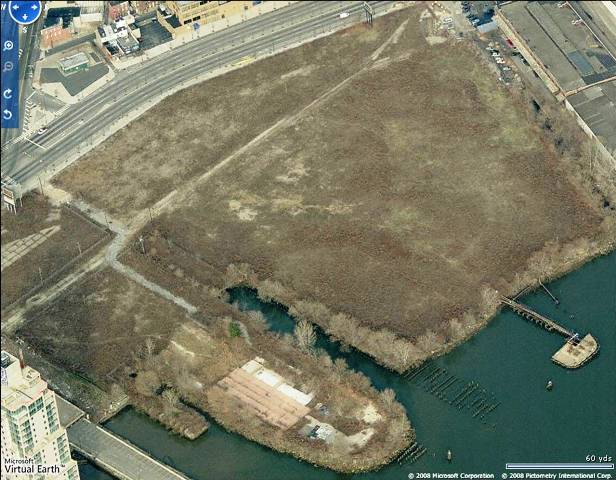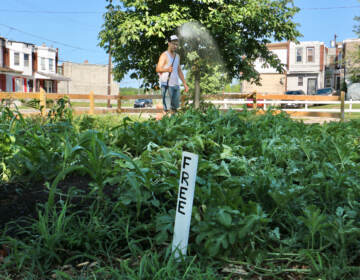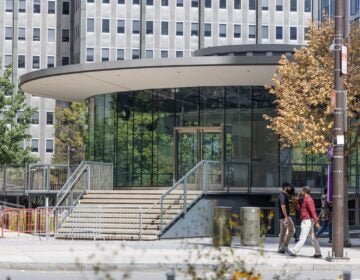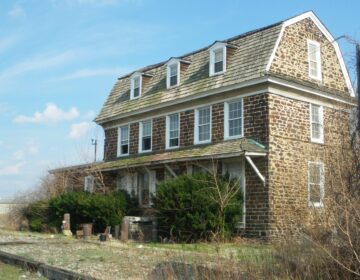Consultants: “Stop work at SugarHouse”

May 15
By Kellie Patrick Gates
For PlanPhilly
Local historians, preservationists, archaeologists and neighborhood activists say the history of the SugarHouse Casino site is in jeopardy because the federal agency that is supposed to safeguard it has lost control of the process.
This group – all consulting parties advising the Army Corps of Engineers as it considers SugarHouse’s Clean Water Act permit – has asked the Corps to immediately stop the latest round of archaeology that began at the site Tuesday morning because the Corps did not approve the work plan. They also believe that as advisors, they should have had the opportunity to review the plan before digging commenced.
“I am deeply concerned that the Corps would allow work to proceed according to a plan they neither reviewed nor authorized,” said Douglas Mooney, a consulting party and president of the Philadelphia Archaeological Forum.
But the Corps says it has acted properly, and its approval was not needed for the supplemental digging being done by SugarHouse’s archaeology consultant, A.D. Marble. The digging is being done in response to a March letter from the Pennsylvania Historical and Museum Commission. The Corps has the ultimate decision-making power – it can decide to grant or deny a permit regardless of what its advisors say. But when it comes to historic preservation, it receives guidance from the Commission.
“The applicant did not seek our approval for their latest proposal to do certain archaeological investigations,” wrote James Boyer, the Corps biologist who is in charge of the permitting process, in an email to PlanPhilly. “An approval or permit from the Corps would not necessarily be required for such study. Generally, if it is being done in accordance with PHMC’s wishes as well as normal archaeological standards, we would not object if PHMC felt the work was appropriate.”
This roils consulting party Hilary Regan, a member of the Northern Liberties Neighbors Association.
“It is the duty of the Corps to review the proposed scope (of work) and determine if it is proper,” she wrote in an email to Boyer. “Furthermore, the Corps, in conducting this review and prior to any decisions, must seek input from the Consulting Parties.”
Boyer said the Corps has not asked SugarHouse to stop the archaeological work, which was expected to take only a few days.
Regan referred Boyer to a section of the Code of Federal Regulations, which says the permitting agency, in partnership with the State Historic Preservation Office (in this case, the PHMC), shall determine the scope of the historic preservation work. http://edocket.access.gpo.gov/cfr_2004/julqtr/36cfr800.4.htm
The current digging is aimed only at recovering artifacts or remnants related to a British Revolutionary War fort that once sat on the Delaware Avenue site, and addresses only a portion of the PHMC’s March letter.
The consulting parties remain unconvinced that the PHMC approved of the scope of the work.
“We are in agreement with what they are doing,” said PHMC spokesman Kirk Wilson. But as of Thursday, he said, it had not received a copy of A.D. Marble’s work plan, and so Wilson could not comment on the document. Wilson was not certain if the PHMC had given Marble its approval in a less formal way, and referred the question to Mark Shaffer, an archaeologist with PHMC’s preservation office. PlanPhilly missed a phone call from Shaffer, and has not yet been able to connect with him.
Mooney said he has reminded Boyer that they have “the sole responsibility, and the sole legal jeopardy” for the process.
“What you want to have is a concrete plan where everybody knows what steps are to be taken, and in what sequence, so there is no mystery about it,” Mooney said in an interview. The result is distrust, he said. The consulting parties wonder if their participation in the process was a waste of time, because the current archaeological work plan does not reflect any of their concerns, except those that were also shared by the PHMC.
Many of the consulting parties, including Delaware Nation preservation officer Tamara Francis and Penn Treaty Museum director John Connors, are deeply concerned that ancient Native American artifacts will be left behind. Delaware Riverkeeper Maya VanRossum wants more digging to discover the historic shoreline of the river – so does the PHMC, but the current digging plan does not address this. Kenneth Milano believes the archaeologists should look for evidence of Batchelor’s Hall – an old social club to which many noteworthy Philadelphians, including John Bartram was a member. Bartram may have planted his first botanical garden there.
In an email to PlanPhilly, Boyer said that more archaeology is likely, and that it would be done with the guidance of the consulting parties.
“It is expected that the current process will likely ultimately result in a detailed plan or agreement for moving forward into another phase of archaeology, which would include data recovery (sometimes called “Phase III”),” Boyer wrote. “This would not take place until we have considered the comments already received as well as the applicant’s responses and whatever plan they propose for moving forward. All this would be closely coordinated with PHMC, as well as other consulting parties as appropriate when we feel that their further advice or comments would be beneficial.”
SugarHouse spokeswoman Leigh Whitaker said SugarHouse will do further archeological work if the Army Corps asks it to do so.
Boyer has been swamped with emails from the consulting parties, and he sent them a group response that touches on the same points as the one he wrote to PlanPhilly.
Mooney said the email he received gave him no comfort or confidence, because its language is too vague.
“He just said things are going on as they are going on, and it will be sorted out later,” Mooney said. “I don’t think this is the right way to approach this …There’s no guarantee in any of that that the consulting parties’ concerns are going to be taken into account. On the one hand he implies that this is an initial round of supplemental testing, and there will be more to follow – but that’s not certain.”
Mooney said he plans to ask that the consulting parties be taken on another site tour, so that they can see the work that has been done.
Regan – and many others during the public comment period – have requested that the Corps hold a public hearing prior to making its final decision on the SugarHouse permit. The Corps has yet to decide whether it will do so.
Contact the reporter at kelliespatrick@gmail.com
WHYY is your source for fact-based, in-depth journalism and information. As a nonprofit organization, we rely on financial support from readers like you. Please give today.






